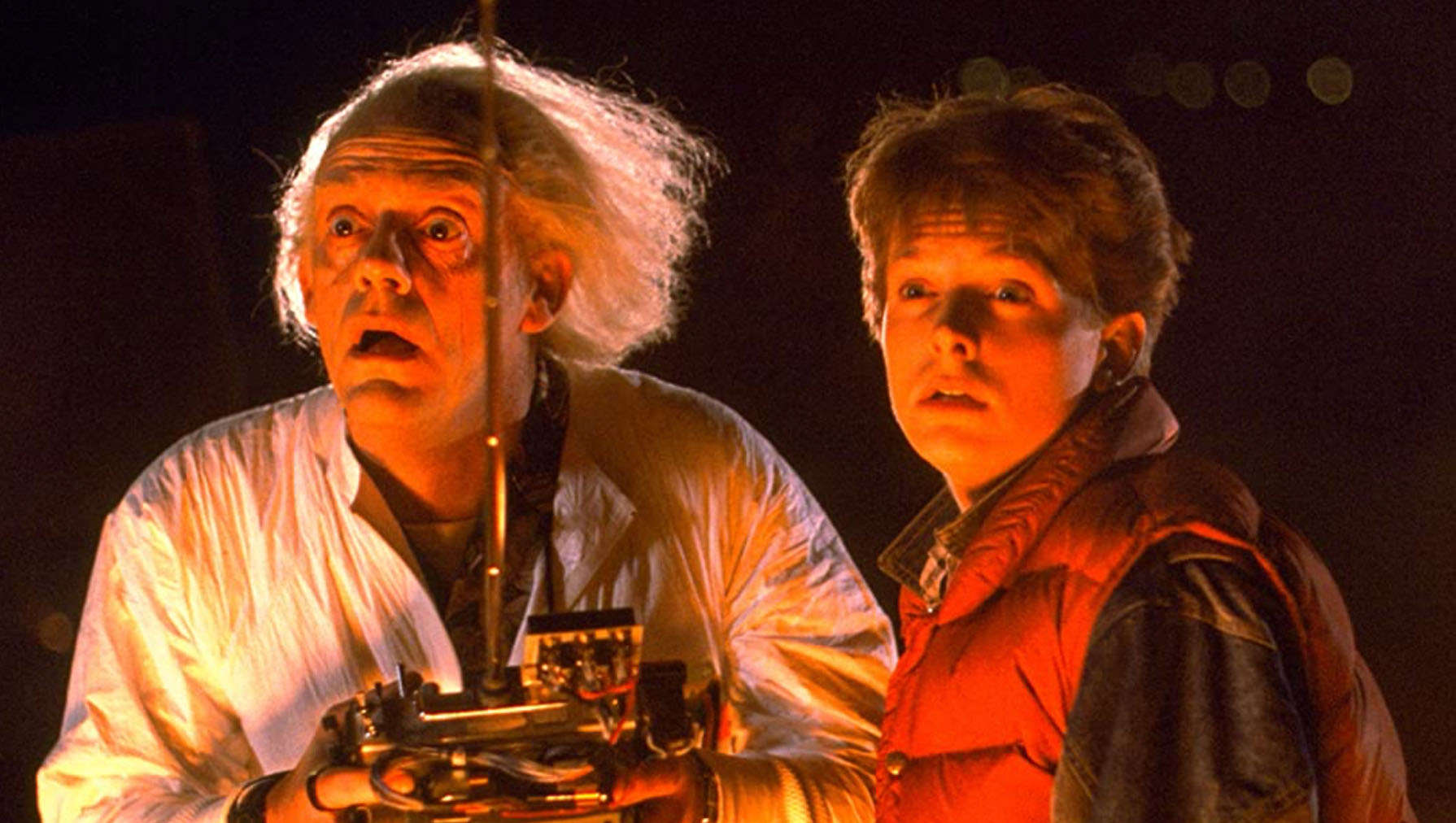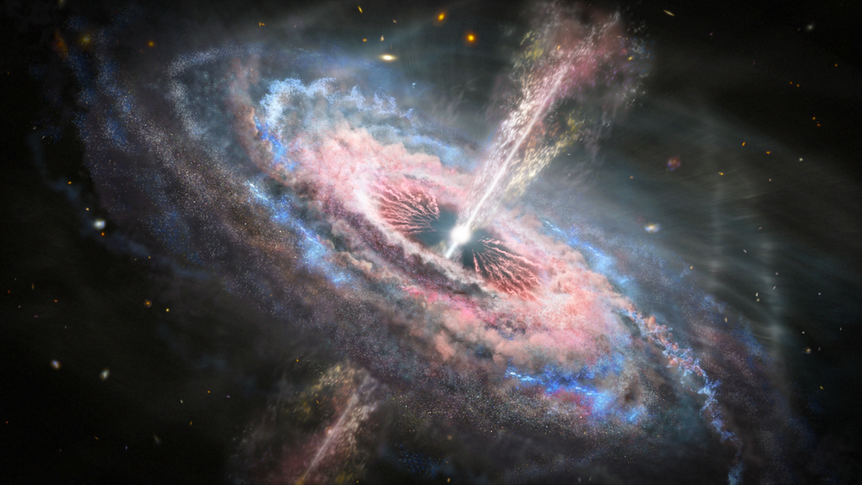Create a free profile to get unlimited access to exclusive videos, sweepstakes, and more!
Scientists Confirm Time Moved More Slowly in the Early Universe
Everything used to move in slow motion.

In Back to the Future, when Marty (Michael J. Fox) hopped into the DeLorean and travelled back in time to 1955, he could at least be certain that the flow of time a few decades before his birth would be more or less than same as he was used to. The styles, vernacular, and behavior may have changed, but time itself remains the same. Right? Turns out, not so much.
The flow of time is an intimately personal thing. It’s minutely different for each of us, depending on our particular velocity through time and space. That’s what Einstein’s theory of General Relativity was all about. Time itself is relative. In simple terms, you can think of an object as having a certain amount of points to spend moving through space-time. Spending more points on motion means you have less left over for time or vice versa. The quick and dirty math basically works out this way: The faster you are moving through space, the slower you are moving through time. Astronomers have predicted they should be able to see this time dilation in the light of distant cosmic objects. Now they’ve confirmed that hypothesis in a recent paper published in the journal Nature Astronomy.
Time Dilation in Distant Quasars
Our view of the universe is one of runaway growth. The universe is expanding and not only that, but it’s expanding faster today than it was yesterday and it will expand even faster tomorrow. As far as we can tell, entropy is ramping up and it will continue to do so until, eventually, everything in the universe is spread into a thin layer of diffuse material, too scattered to ever come together again. That is how the universe will die. Even time is running more quickly today than it once was.
RELATED: FAA Approves Test Flights for Real-Life $300,000 Electric Flying Car
That’s tough to measure because the flow of time doesn’t change from any particular observer’s personal perspective. For you, a second will always last a second, even if they look squished or stretched out to someone else. Time is truly weird.
To determine if time ran at a different rate in the early universe, as predicted by General Relativity, astronomers turned to quasars. In addition to having one of the coolest names in astronomy, quasars are active galactic nuclei (AGNs), a name for supermassive black holes at the center of galaxies, actively gobbling up material. As an accretion disk of gas and dust falls toward the black hole, it heats up, releasing light we can see with our telescopes.
Astronomers used data from the Sloan Digital Sky Survey (SDSS), Pan-STARRS, and the Dark Energy Survey to analyze 190 quasars over more than 20 years. They were hoping to find evidence of redshift-dependent time dilation, and they did!
As photons from distant quasars travel across the cosmos to our eyes, they have to cross increasingly expanding space. Moreover, photons hitch a free ride on expanding space to move faster than they otherwise would. Think of it like running on a moving sidewalk. You’re running at your usual pace, but your speed to an outside observer is much faster.
RELATED: Yes, That Back to the Future Gag in The Flash is Based on a True Story
In the case of quasars, each step in their running gait is measured by fluctuations of light coming off of the AGN as material falls in. In local parts of the universe, we see comparatively nearby quasars fluctuating rather quickly, over the course of days. When peering back toward distant quasars from the early universe, however, astronomers observed those changes happening approximately five times more slowly.
To the quasars themselves, everything would have felt perfectly normal (if quasars were capable of personal experience) but to us, we see them moving in slow motion. Once again, Einstein was right, and it is awesome!
Have your own adventures in time with Back to the Future, available now from Universal Pictures.



























